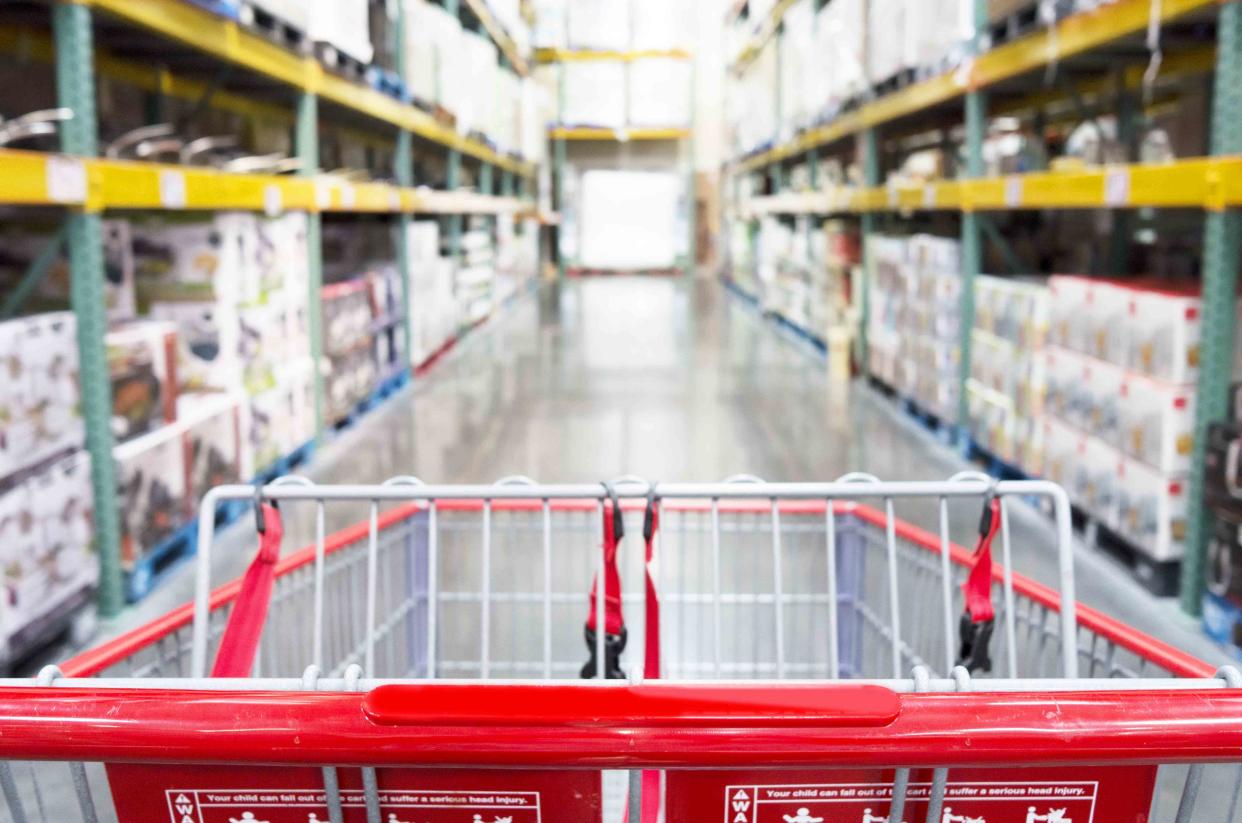6 Things You May Want To Reconsider Buying In Bulk

Getty Images
Who doesn’t love a trip to Costco? There’s something comforting about stocking up on household staples and knowing that you don’t have to worry about running out of items you use every day. And while it’s true that you can never have too much toilet paper, there are a few things that may seem like a good idea to buy in bulk that you actually want to skip.
Here, six items we recommend passing on buying in bulk and purchasing on an as-needed basis only.
Tea
While you’ll see plenty of boxes holding 100 or more tea bags on shelves, we don’t recommend going this big unless you’re planning on hosting that many people for brunch. Tea doesn’t go bad to the point where you can’t drink it, but it will lose both its flavor and its health benefits after six months. To slow down this process, choose loose-leaf or tea bags that come in tins or canisters that have an airtight seal (or transfer your tea bags to one of these containers); air can easily penetrate a cardboard box and plastic envelopes, so the flavor will dull faster.
Spices
We’ll be honest: We likely have a few spices in our cabinet that haven’t been used in years, purchased for a special recipe and then resigned to the back of the cupboard. Plus, we know that buying pricier spices in bulk can save some money in the long run. However, spices fall into the same boat as tea; while they won’t go bad if they are stored in airtight containers, they will lose some of their flavor, which can lead to an unbalanced at best and lousy-tasting dish at worst. To determine whether you need to replace your spices (which will likely happen around six months), open the container and give it a sniff. If it smells strongly of the spice, it’s good to go. If you can’t smell anything, it’s time to toss.
One thing to keep in mind: This applies primarily to ground spices. Whole spices keep much longer, sometimes up to five years, so those are A-OK to buy in bulk.
Olive Oil
Here’s one that actually does go bad. Olive oil has turned the corner from good to rancid when it starts to smell or taste funny, doesn’t taste like anything at all, or feels greasy in your mouth. It’s not going to make you sick, but it will transmit that funny taste to your food and deliver fewer (or no) nutritional perks. Heed the best-by date on the bottle and choose the size you think you’ll use up within a month or two.
If you use olive oil a lot and do want to buy that giant bottle, confident you’ll use it within a few months at most, we recommend keeping it in a cool, dark place and transferring some to a smaller bottle that you’ll use to coat your pan or drizzle over your salad. This way, you aren’t exposing all your olive oil to the air every time you open it.
Hand Sanitizer
Did you buy a giant jug or a pack of 50 or 100 travel-size hand sanitizers back in 2020? Do you still have some lying around? If so, it’s time to toss them, especially any containers that you’ve opened. It’s not dangerous to use expired hand sanitizer, but its disinfectant properties decrease over time. So if you have any unopened containers that have been in your cupboard for over two years or opened ones you’ve had for more than one, you’ll be squirting a solution that’s mostly water on your hands (which isn’t very effective at killing germs). It's best to pick up a new bottle instead.
Hydrogen Peroxide
From cleaning and disinfecting to removing stains to whitening nails and brightening cookware, the household uses for hydrogen peroxide are nearly endless. That is, if you use it within six months of opening it. A sealed container of hydrogen peroxide will last up to three years, but every time you open the bottle oxygen gas escapes through the top. That means that eventually, if you’re opening it regularly, you’ll be left with a large jug of good old H20—and water isn’t very effective for cleaning (at least on its own).
To check to see if your hydrogen peroxide is still effective, pour a little out into the sink. If it fizzes or bubbles, go ahead and use it. If it simply slides down the drain, it’s best to throw it away.
Skin Cream
We’ve been known to stock up on a skin cream we adore on the off chance the company stops making it. But buying skincare products in bulk isn’t the best idea—and you actually risk hurting your skin. Indeed, skin creams have an expiration date, thanks to the fact that the active ingredients can stop working and the oils can go rancid. Plus, if you’re using a jar-style cream that you’re dipping your fingers into and/or opening in a humid bathroom after a shower, you’re exposing the product to bacteria and moisture, respectively, which can turn it from something that makes you look younger to something that makes you look strange.
To make your skin cream last, choose one that comes in a bottle or a pump-top container (or transfer your cream to one of these after purchasing). Otherwise, take note of the expiration date and try to use your cream within a few months.
For more Southern Living news, make sure to sign up for our newsletter!
Read the original article on Southern Living.

